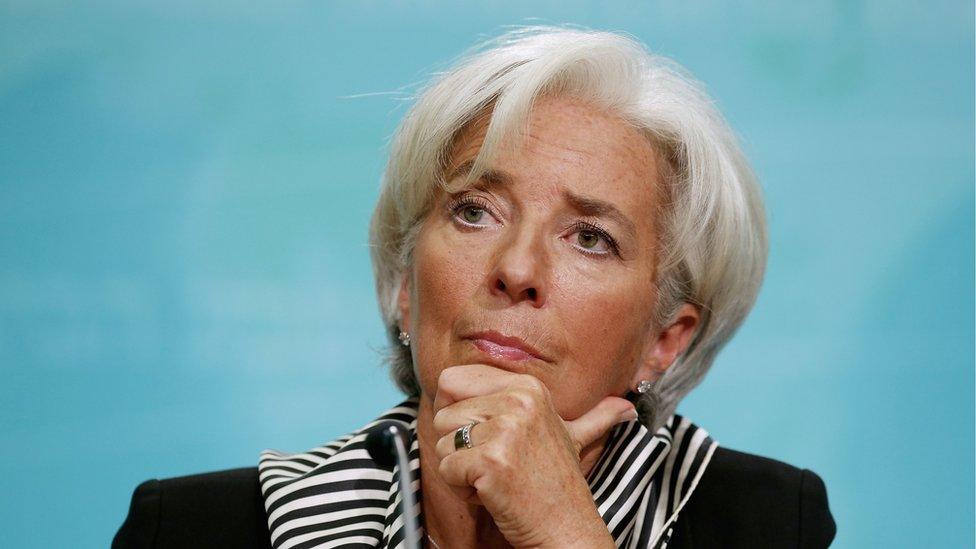Khashoggi death: US meets Saudi crown prince despite criticism
- Published
Jamal Khashoggi and how Saudi critics keep going missing
A senior US official has held talks with Saudi Arabia's crown prince in Riyadh, despite growing concern over the Saudis' role in the murder of journalist Jamal Khashoggi.
US Treasury Secretary Steven Mnuchin met Mohammed bin Salman on Monday.
Turkish officials say Mr Khashoggi was murdered in the Saudi consulate in Istanbul after a visit on 2 October.
Riyadh has given conflicting accounts of Mr Khashoggi's fate. It now blames a "rogue operation" for the murder.
Turkish President Recep Tayyip Erdogan has said he will reveal the "naked truth" of the matter in parliament on Tuesday.
How has the Saudi version changed?
Saudi officials initially said Mr Khashoggi had left the consulate on the same day he visited it.
Last Friday they admitted for the first time he was dead but said he had been killed in a "fist fight".
On Monday, Saudi Arabia acknowledged Mr Khashoggi had been murdered, but said the Saudi leadership had not been aware of the "rogue operation".
"We are determined to find out all the facts and we are determined to punish those who are responsible for this murder," Foreign Minister Adel al-Jubeir told Fox News.
Jamal Khashoggi: What we know about the journalist's disappearance and death
"The individuals who did this did this outside the scope of their authority," he added. "There obviously was a tremendous mistake made, and what compounded the mistake was the attempt to try to cover up."
He said that Saudi Arabia did not know where the body was.
The Saudis say they have arrested 18 people, sacked two aides of Mohammed bin Salman and set up a body, under his leadership, to reform the intelligence agency over the killing.
What do we know of the Riyadh talks?
The meeting in the Saudi capital was held behind closed doors.
A Treasury Department spokesman said Mr Mnuchin and the crown prince had discussed economic and counter-terrorism issues, and Mr Khashoggis' death.
Saudi state media reported that they had stressed "the importance of the Saudi-US strategic partnership".
The talks were held despite the fact that Mr Mnuchin - like a number of other Western politicians and businessmen - had pulled out of a major investment forum being held in the Saudi capital this week.
Many world leaders have condemned the murdered and demanded a full investigation.
Germany Chancellor Angela Merkel said she would halt arms exports to Saudi Arabia if the killing is not "cleared up", while Canadian Prime Minister Justin Trudeau threatened to cancel a multi-billion-dollar defence contract.
But several of Saudi Arabia's regional allies - including Kuwait and Egypt - have come out in its support.
Does the US believe the Saudi version of events?
President Donald Trump's latest comments suggest the US is yet to decide on its response.
This video has been removed for rights reasons
Mr Trump has pledged to "get to the bottom" of the matter - and US media reports say CIA chief Gina Haspel is on her way to Turkey to help with the investigation.
Earlier on Monday, Mr Trump told reporters he was "not satisfied" with Riyadh's account, but added: "I don't want to lose all that investment that's been made in our country," referring to the multi-billion-dollar arms deals with Saudi Arabia.
However, later on Monday, the president told USA Today he still believed the killing was "a plot gone awry", external, appearing to support the Saudi version of events.
He questioned Turkish officials' account that the 15 suspects who arrived in Turkey hours before Mr Khashoggi's disappearance dismembered the body with a bone saw, asking journalists: "Do you know there was a bone saw?"
Mr Trump also said he had discussed the issue with the Saudi crown prince, seen as the country's most powerful figure.
How high up does the 'rogue' plot go?
Mr Jubeir insisted that the murder had not been ordered by the Saudi crown prince.
But some commentators have pointed out that one of the senior aides who was fired over Mr Khashoggi's disappearance had previously said he did not act without senior approval.
"Do you think I make decisions without guidance?" Saud al-Qahtani tweeted in August last year (in Arabic), external. "I am an employee and a faithful executor of the orders of the king and His Royal Highness the crown prince."
Separately, Yeni Safak, a media outlet close to Turkey's government, said it had information showing that the office of the crown prince received four phone calls from the consulate after the killing.
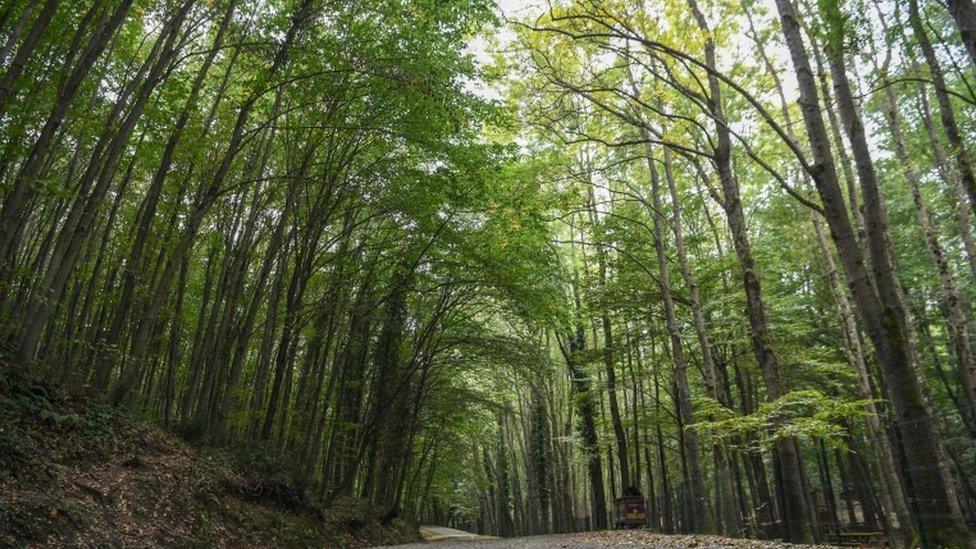
Investigators are searching Belgrad forest for the body
Reuters news agency reported on Sunday it had spoken to a Saudi official who said Mr Khashoggi had died in a chokehold after resisting attempts to return him to Saudi Arabia. His body was then rolled in a rug and given to a local "co-operator" to dispose of.
CCTV footage obtained by CNN appears to show a Saudi operative leaving the consulate by the back door on the day the journalist was killed, wearing Mr Khashoggi's clothes, a fake beard and glasses.
He and an accomplice are seen walking to a busy area of Istanbul before apparently discarding Mr Khashoggi's clothing.
In another development, Turkish police found a car belonging to the Saudi consulate left in an underground car park in Istanbul.
Turkish media also posted footage apparently showing Saudi consular staff in Istanbul burning documents a day after Mr Khashoggi's disappearance.

Turkey's 'full account' vow
Analysis by BBC security correspondent Frank Gardner
After weeks of calculated and often lurid leaks to the Turkish media, Tuesday morning's statement by President Erdogan is eagerly awaited.
Turkey has promised "a full account" of what happened to Mr Khashoggi, with nothing held back.
So that would include the widely reported audio tape from inside the Saudi consulate then? And evidence of the "bone saw" allegedly brought in by the hit team that killed him?
Because both of these elements are crucial in establishing the facts about what happened and the motives of his murderers. If evidence of the bone saw can be produced then it would certainly imply murderous intent by the hit team from Riyadh.
The audio tape of his murder - if it does exist - could be excruciating to listen to - but is an essential part of the puzzle of how Mr Khashoggi died. But Turkey, a country that has itself jailed more journalists than any other nation on Earth, may have its own reasons for holding back on what it has.
For the full story, we may have to wait a little longer yet.

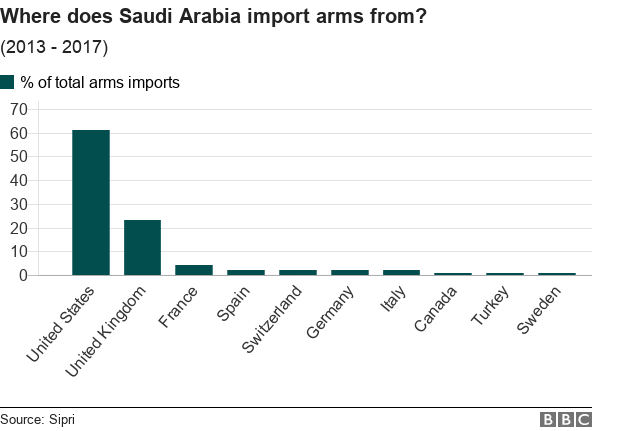
Meanwhile, at least 40 attendees have withdrawn from the Future Investment Initiative, the so-called "Davos in the Desert", that begins in Riyadh on Tuesday.
However, hundreds are still attending, and the talk among delegates is of pragmatism, and that there is a big future at stake in Saudi Arabia, the BBC's Arab Affairs editor Sebastian Usher reports from Riyadh.
- Published22 October 2018
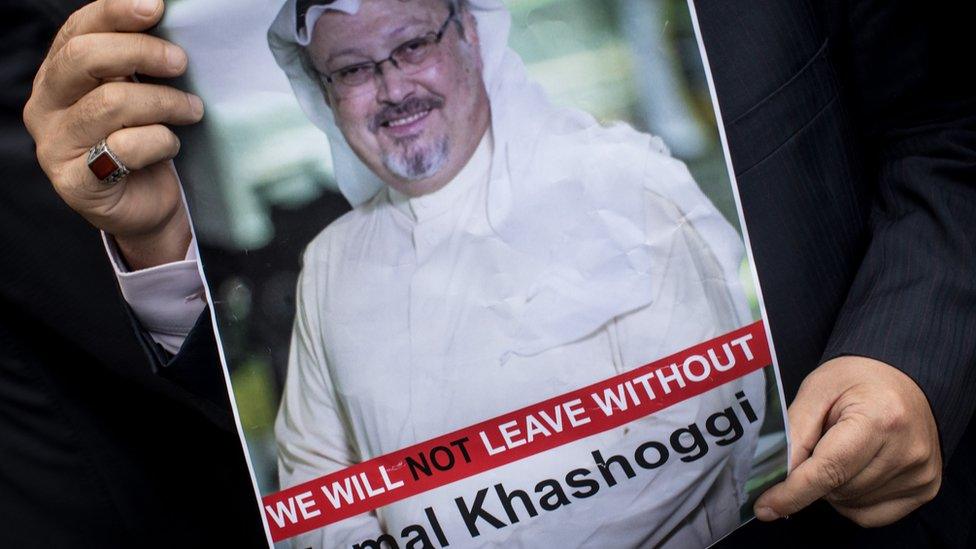
- Published19 October 2018
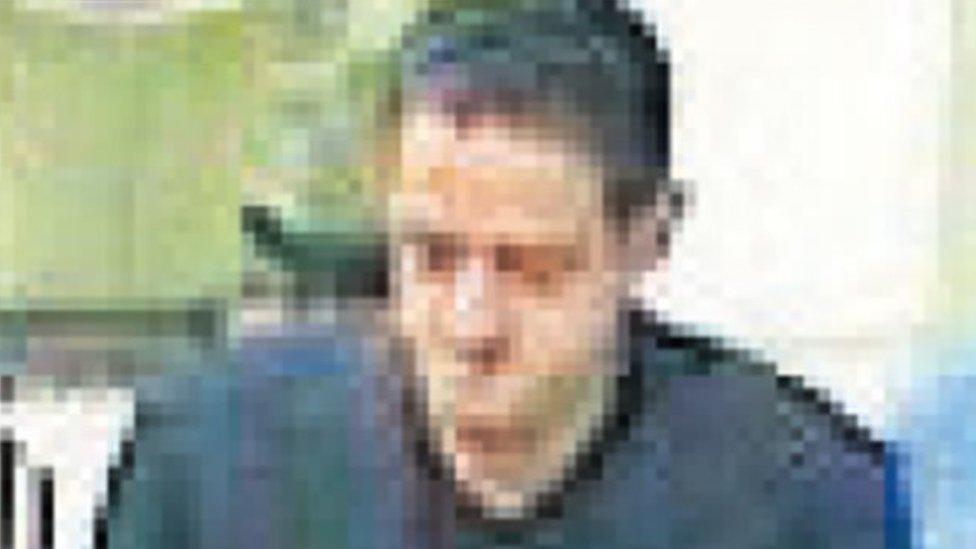
- Published18 October 2018
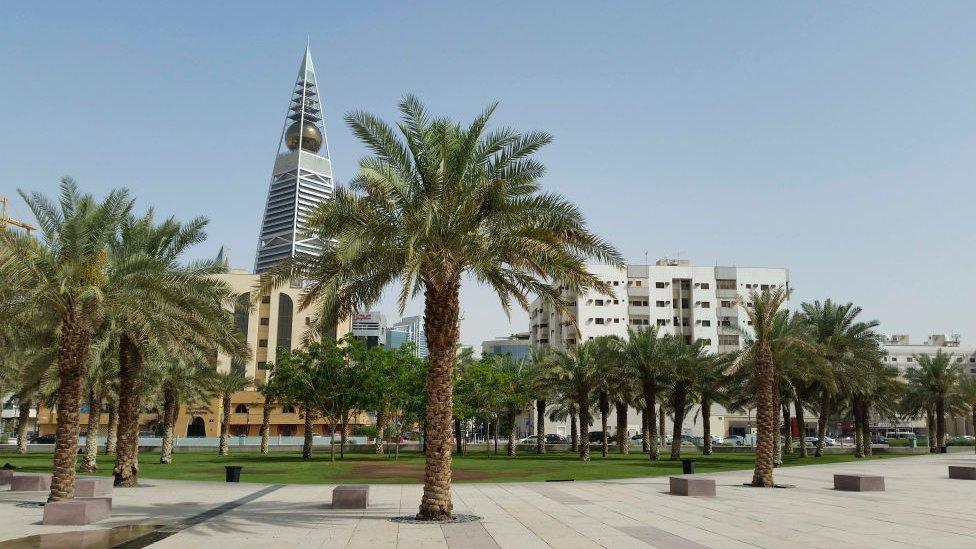
- Published17 October 2018
